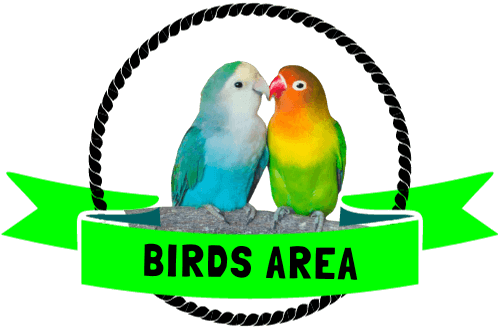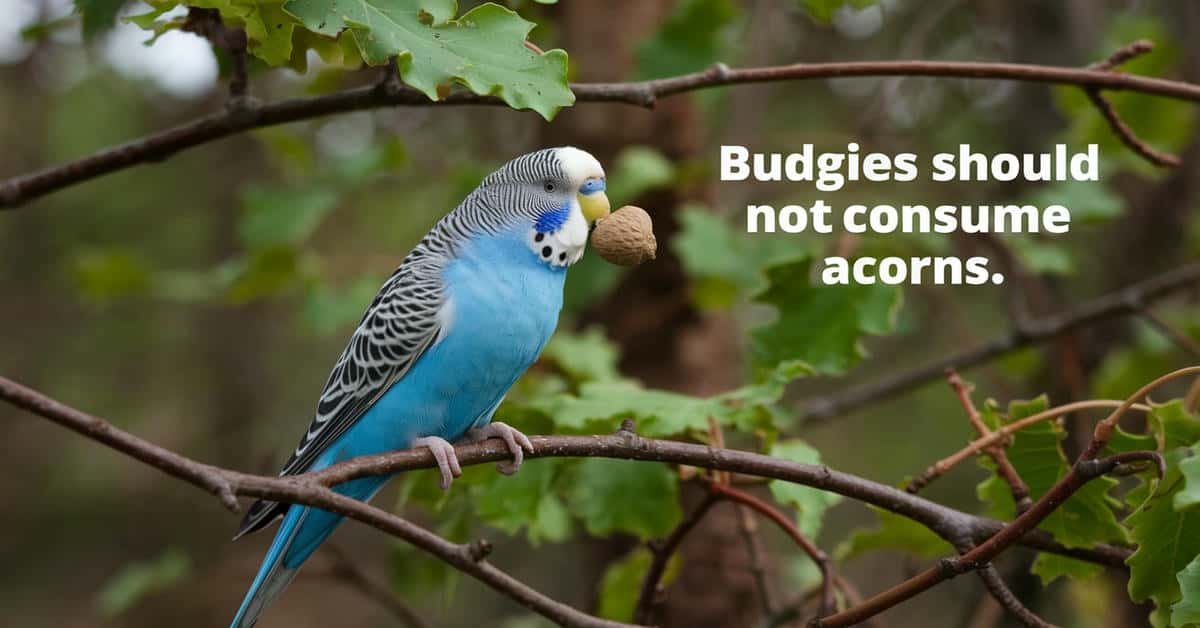Can Budgies Eat Acorns Safely?
No, budgies should not consume acorns. They contain tannins, which can be harmful and lead to serious health issues. It’s best to provide them with a diet of seeds, fruits, and vegetables that are safe for avian companions.
As a passionate bird owner, I’ve always been curious about the foods I can safely share with my budgies. Today, we’ll explore a question many bird lovers wonder: “Are acorns safe for budgies?”
This topic is vital since even seemingly harmless snacks can carry hidden dangers. Knowing what to feed our feathered friends ensures their health and happiness.
Are Acorns Safe for Budgies?
Absolutely not. Acorns are not suitable for budgies due to their toxic properties.
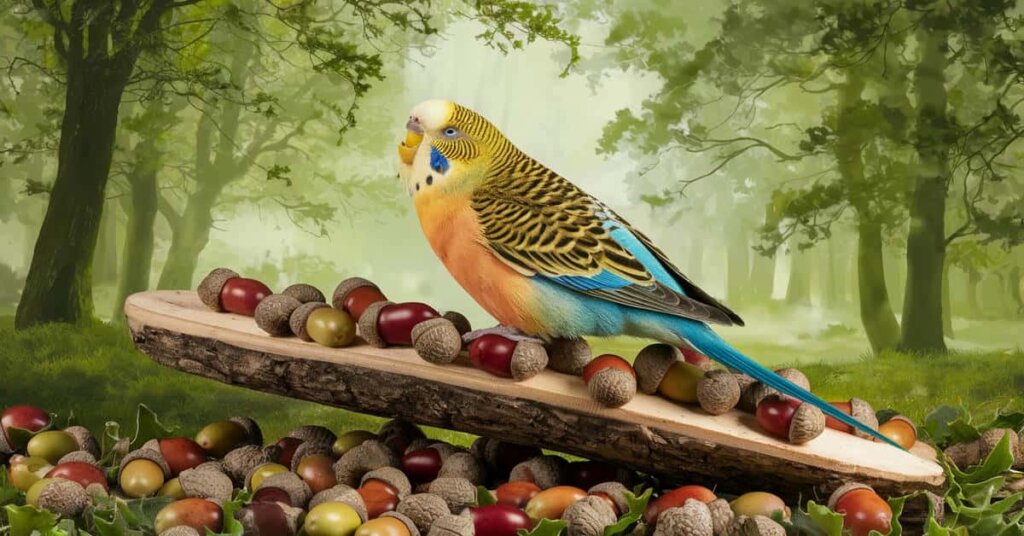
When considering wild snacks for your budgie, you might think of acorns, especially in fall when they’re plentiful.
However, these nuts are a definite no-go for your little companions. Let’s explain why acorns can be harmful and your safe options.
Why Are Acorns Harmful to Budgies?
Acorns are harmful to budgies due to the presence of tannins and toxic compounds. These elements can severely impact a budgie’s health for the following reasons:
- The Tannin Issue:
Acorns are high in tannins, a group of bitter compounds that can wreak havoc on a budgie’s digestive system. Budgies are much more sensitive than larger birds that can handle some tannins. This sensitivity makes them vulnerable to several health issues.
2. Health Risks Include:
- Digestive Distress: Tannins can cause stomach upset, leading to discomfort for your budgie. Signs include refusal to eat and unusual droppings.
- Organ Damage: Chronic exposure to tannins can lead to severe problems, including liver damage. This is particularly concerning since budgies are small, and their systems are delicate.
- Potential Toxicity: Even a small amount of acorns can result in significant health risks for your bird, so the safest route is to avoid them.
What About Cooked or Processed Acorns?
You might wonder, “What if I cook or process acorns?” Unfortunately, cooking doesn’t eliminate the tannins completely.
Even trace amounts can still be harmful to your budgie. The best practice is to steer clear of acorns entirely, regardless of their preparation.
Nutritional Breakdown of Acorns
While acorns contain carbohydrates, fats, and proteins, they lack the essential vitamins and minerals that budgies need.
Their diet should primarily consist of seeds, fruits, and vegetables, which provide the necessary nutrients without the risks associated with acorns.
An ounce of acorns contains enough tannic acid to harm a small bird like a budgie. That’s why it’s crucial to avoid feeding them altogether.
Signs of Tannin Poisoning in Budgies
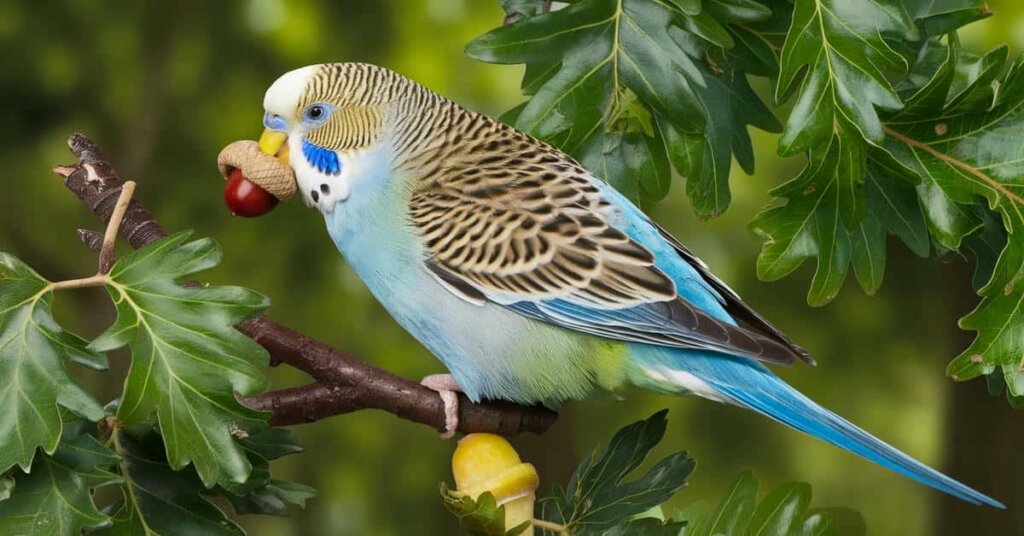
If your budgie accidentally ingests acorns, watch for these symptoms:
- Lethargy: Your bird may seem unusually tired or inactive.
- Vomiting or Regurgitation: They might try to expel the irritant from their system.
- Diarrhoea: This can lead to quick dehydration, especially in small birds.
- Loss of Appetite: Your budgie might refuse to eat any food.
If you notice any of these signs, contact your avian veterinarian immediately. Quick action can make all the difference in your budgie’s recovery.
Safe Alternatives to Acorns for Budgies
Fortunately, there are plenty of safe and nutritious options to choose from.
Here are some healthy snacks your budgie will enjoy:
- Carrots: Rich in vitamins and perfectly safe to munch on.
- Apples (without seeds): Sweet and delightful, these are often a favorite treat.
- Broccoli: Packed with nutrients and a safe choice for your feathered friend.
- Spinach: Provides iron and vitamins but should be offered in moderation due to oxalates.
Did You Know? Millet and oats are also fantastic for budgies. These grains are not only safe but provide essential energy without the risk of toxicity.
Expert Opinions on Acorns and Bird Health
A well-respected avian veterinarian, Dr Jane Thompson, warns, “Although acorns are natural, not all natural foods are safe for birds. For smaller birds like budgies, acorns pose a significant risk due to the tannins.”
This sentiment is echoed across bird care forums, where experienced pet owners advise avoiding questionable foods.
Forum Feedback: Real Experiences from Bird Owners
On a popular bird forum, a bird keeper named Alex shared, “My parrot once tried an acorn, and I ended up rushing to the vet. It was a lesson learned the hard way. Now, I keep my budgies away from any food that isn’t explicitly safe.”
These real stories highlight the importance of vigilance in what we offer our pets.
How to Protect Your Budgies from Acorns
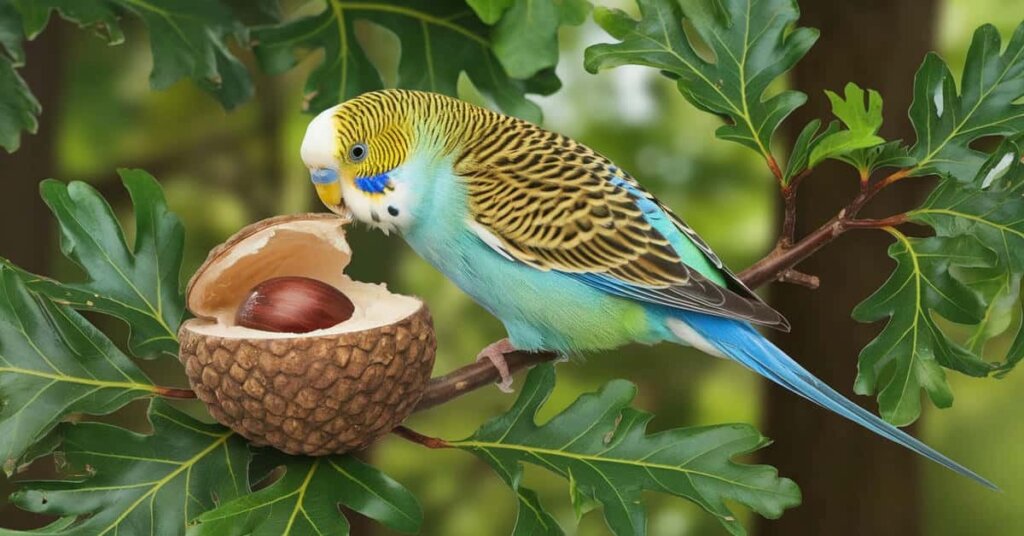
To keep your budgies safe, here are some proactive steps you can take:
- Maintain a Clean Environment: If your budgie enjoys outdoor time, ensure no acorns are around.
- Inspect Toys: Some bird toys may contain parts from oak trees. Always check the materials before letting your bird play.
- Supervise Outdoor Play: When your budgie is outside its cage, keep a watchful eye to prevent any accidental nibbles on unsafe foods.
Dr Lisa Morgan, a bird nutrition specialist, emphasizes, “Prevention is key to birds. Their small size makes them more sensitive to toxic substances.”
FAQ for Budgies Health
1. Can budgies eat any nuts safely?
2. Can Budgies Eat Tree Nuts?
3. What common household foods are toxic to budgies?
4. How can I tell if my budgie is feeling unwell after eating something harmful?
5. Are oak branches safe for budgies to use as perches?
Summing On Can Budgies Eat Acorns
Your budgie’s safety should always be the top priority. Acorns might seem harmless at first glance but can harm your pet’s health.
Stick to a diet of safe foods that support their well-being, and always consult a vet if you’re unsure about what to feed them.
In conclusion, budgies should not eat acorns, regardless of the amount. The risks far outweigh any potential benefits. Focus on a simple, nutritious diet, and your feathered friend will thrive.
If you found this guide helpful, please share it with fellow bird lovers. Together, we can help keep our feathered friends safe and healthy.
Thanks.
